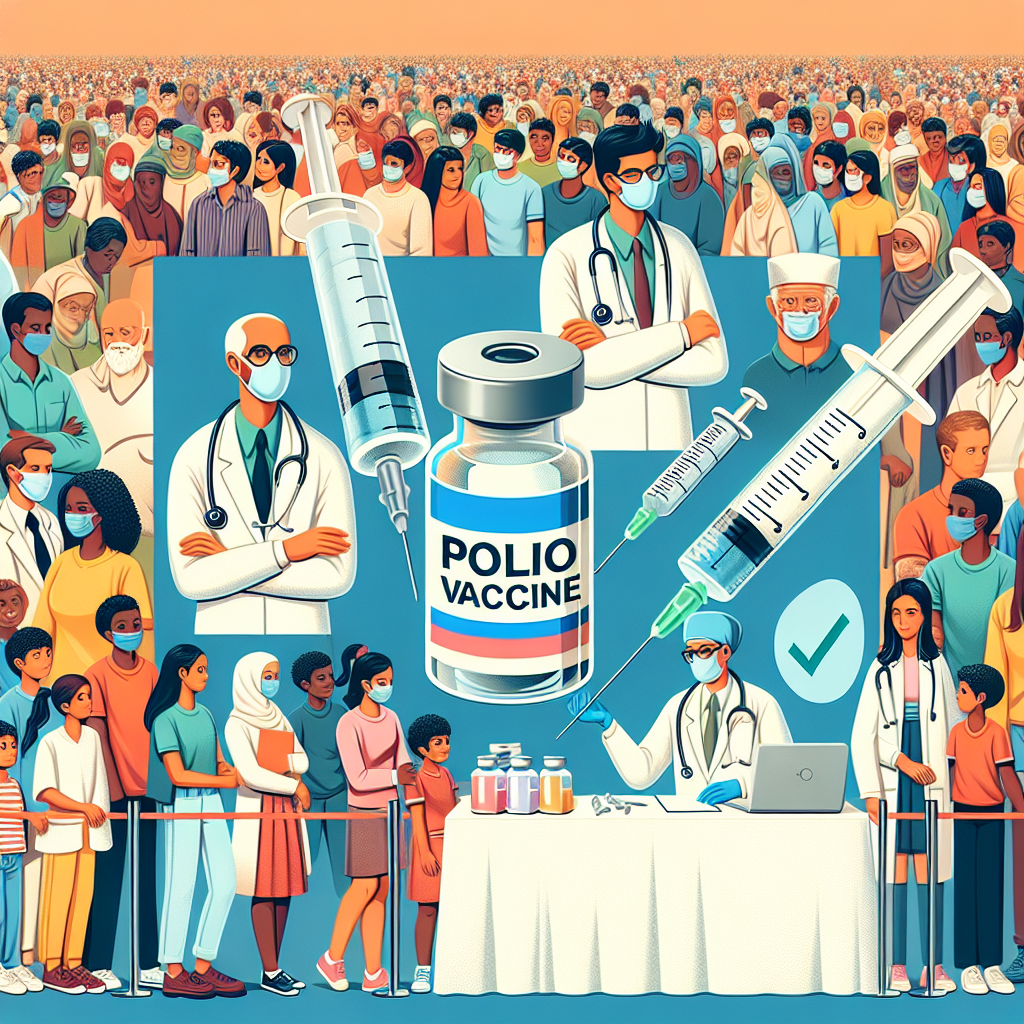UN Agencies Urge Ceasefire for Polio Vaccination Campaign in Gaza
The World Health Organization (WHO) and the United Nations Children's Fund (UNICEF) are urgently calling for a seven-day humanitarian pause in hostilities to allow the campaign to proceed safely.

Two rounds of a crucial polio vaccination campaign are set to begin in late August and September 2024 across the Gaza Strip to prevent the spread of circulating variant type 2 poliovirus (cVDPV2). The World Health Organization (WHO) and the United Nations Children's Fund (UNICEF) are urgently calling for a seven-day humanitarian pause in hostilities to allow the campaign to proceed safely.
The proposed ceasefire would enable children and families to reach health facilities without fear and allow community outreach workers to access those who are unable to visit health centers for vaccination. Without these humanitarian pauses, the campaign's delivery will be significantly hindered.
The Palestinian Ministry of Health, in collaboration with WHO, UNICEF, the United Nations Relief and Works Agency for Palestine Refugees (UNRWA), and other partners, aims to vaccinate over 640,000 children under the age of ten. Each child will receive two drops of the novel oral polio vaccine type 2 (nOPV2) during both rounds of the campaign.
The need for this campaign became urgent after the detection of the poliovirus in environmental samples from Khan Younis and Deir al-Balah in July 2024. Additionally, three children with suspected acute flaccid paralysis (AFP), a common symptom of polio, have been reported in Gaza. Their stool samples are currently being tested at the Jordan National Polio Laboratory.
More than 1.6 million doses of nOPV2, along with essential cold chain equipment, are scheduled for delivery to Gaza via Ben Gurion Airport by the end of August. Ensuring the vaccines' timely arrival and proper storage is critical to the campaign’s success.
The vaccination effort will involve 708 teams working at hospitals, field hospitals, and primary health care centers across Gaza. Approximately 2,700 health workers, including mobile teams and community outreach workers, will be mobilized to ensure that at least 95% of children receive the vaccine during each round, a necessary target to prevent the virus from spreading further.
The success of the campaign also depends on the availability of cash, fuel, and functional telecommunications to disseminate information and coordinate efforts.
Despite being polio-free for the past 25 years, the reemergence of the virus in Gaza poses a severe threat to children in the region, exacerbated by the ongoing conflict and the disruption of health, water, and sanitation systems. The international community has been warning about this potential health crisis for the past ten months, and a ceasefire is now seen as the only viable solution to ensure
- READ MORE ON:
- Polio
- Gaza
- United Nations Children's Fund
- World Health Organization
ALSO READ
WHO Thanks UAE for $5 Million Contribution to Gaza Polio Vaccination Drive
Health Updates: Polio in Gaza, COVID and Mpox Vaccines, Opioid Settlement, and More
Gaza's Children Receive Polio Vaccines Amidst Ongoing Conflict
Gaza Launches Polio Vaccination Amid Turmoil
Health Headlines: Polio, COVID, Mpox, and More










